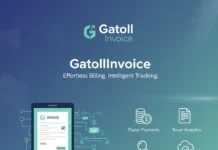There are sometimes when it becomes difficult to pay some bills, yes life happens. And it can happen to anyone. Today, bills such as water, electricity, fuel oil, and gas are easily among the biggest household expenses. To keep up with the oil tank full and power on is challenging, particularly when you are facing some hard times.
If you are currently in a situation where paying for your heating bills becomes a challenge, there are several options for help. There are different programs by charities, governments, and utility companies that can help you ease your stress.
Top Tips for Paying Off Heating Bills
Sometimes heating bills can sum up to very high figures. Without the funds, it may become frustrating paying for heating bills. Below are four ways to pay for your heating bills.
Apply for a loan
An easy loan can help you out of your current situation. So you can apply for an online payday loan in Ontario. It will help you to pay for your heating bills.
Take care of your debt via your benefits
You could reimburse your debt straight from your benefits. It can be done through the Fuel Direct Scheme. A decent sum will consequently be taken from your benefits to cover what you owe, in addition to a more sum for your current use.
It may be more helpful than having a prepayment meter fitted (which your provider could attempt to do when you cannot concur to a payment plan) and you would not risk being out of electricity or gas.
To be qualified, you should get one of the accompanying benefits income support, income-based jobseeker’s allowance, universal credit, annuity credit, and employment and support allowance income.
Government initiatives
If you realize that you will not have the option to take care of a utility bill, begin searching for help as soon as possible. There are some programs ordered by the government that help with electric bills. You should take advantage of them.
Government-supported initiatives and good causes can help. However, you need to realize what’s accessible and request it. The top utility help program for electric bills and different utilities that give warming and cooling is the LIHEAP (Low Income Home Energy Assistance Program). It is controlled by the government Department of Health and Human Services. The program gives states cash to help those in monetary need, to cover their energy bills.
Make a payment plan with your supplier
Assuming missing payments for gas or power stress you out, then contact your provider first. Your provider needs to work with you to come up with a payment plan that suits you.
However, some suppliers like Utility Warehouse still offer consumers ways to save money on energy bills. An effective way to reduce expenses is to combine your utility bills with other services. Combining gas, mobile or broadband services with your electricity bill can help you save money.
Contact your provider on time whenever you are stressed over taking care of your energy bills or you owe your energy provider.
Energy providers will be eager to work with you in deciding on the perfect payment plan that fits your situation. Especially one under Ofgem rules. This incorporates reviewing an arrangement you have previously used.
You can request the following access to hardship funds, a review of your debt repayments and payments, advice on the use of less energy, more time to pay, as well as payment reductions or breaks. Registration for Priority Service is also helpful. That is, a free support service whenever see yourself in a vulnerable circumstance.
Local assistance
Several local programs help individuals to tackle energy bills. Whenever you don’t have electricity or gas, there are local welfare schemes you can take advantage of. Especially top-up vouchers.
Even at certain food banks, there are voucher top-ups if you use a pre-pay meter. To benefit from this, you must first be referred to a food bank.
You don’t need to panic whenever you can’t afford to pay for your heating bills. Seek help. Don’t forget to also make an agreement with your supplier on a payment plan that is conducive to your condition.







